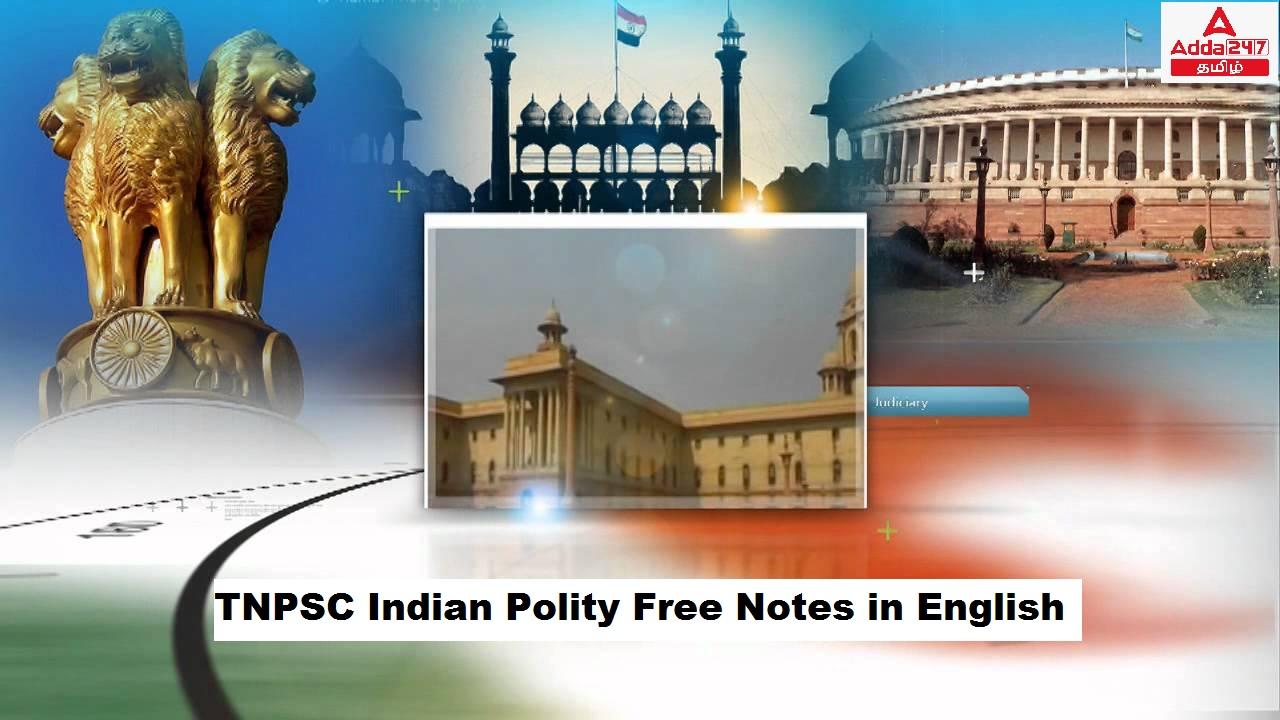இந்தக் கட்டுரையில், TNPSC குரூப் 1, குரூப் 2, குரூப் 2A, குரூப் 4 மாநிலப் போட்டித் தேர்வுகளான TNUSRB, TRB, TET, TNEB போன்றவற்றுக்கான முறைகள் இலவசக் குறிப்புகளைப் பெறுவீர்கள்.தேர்வுக்கு தயாராவோர் இங்குள்ள பாடக்குறிப்புகளை படித்து பயன்பெற வாழ்த்துகிறோம்.
Constitution of India and Making of Indian Constitution
The Regulating Act – 1773
Introduction:
To regulate the affairs of the East India Company in 1772 the British parliament passed the
Regulating Act in 1773. This was the first landmark Act in the Constitutional development of
India.
Background
Warren Hastings became the Governor of Bengal in 1772. Later he was raised to the
position of Governor General of Bengal.
As soon as he assumed office, he had to face many difficulties. In 1772 a terrible famine
affected Bengal.
The Dual Government had ruined the economy of Bengal.
The farmers and artisans led a miserable life. The officials of the English East India
Company were misusing their privileges and amassing great wealth.
The administration was crippled. So the company had to ask the British Government for
a huge amount as a loan.
At this stage, the British Government decided to interfere in the affairs of the Company
Provisions of the Act
The Regulating Act reformed the Company’s Government at Home and in India. The important
provisions of the Act were:
I. The term of office of the members of the Court of Directors was extended from one
year to four years. One-fourth of them were to retire every year and the retiring
Directors were not eligible for re-election.
II. The Governor of Bengal was styled the Governor-General of Fort William whose tenure
of office was for a period of five years.
III. A council of four members was appointed to assist the Governor-General. The
government was to be conducted in accordance with the decision of the majority. The
Governor – General had a casting vote in case of a tie.
IV. The Governor-General in Council was made supreme over the other Presidencies in
matters of war and peace.
V. Provision was made in the Act for the establishment of a Supreme Court at Calcutta
consisting of a Chief Justice and three junior judges. It was to be independent of the
Governor- General in Council. In 1774, the Supreme Court was established by a Royal
Charter.
VI. This Act prevented the servants of the Company including the Governor- General,
members of his council and the judges of the Supreme Court from receiving directly or
indirectly any gifts in kind or cash.
Merits of the Act
The significance of the Regulating Act is that it brought the affairs of the Company under
the control of the Parliament.
Besides, it proved that the Parliament of England was concerned about the welfare of
Indians.
The greatest merit of this Act is that it put an end to the arbitrary rule of the Company
and provided a framework for all future enactments relating to the governing of India
Defects of the Regulating Act
The Regulating Act did not clearly define the jurisdiction of the Supreme Court or the
powers of the Governor General and the members of his executive Council.
The members of the executive council of the Governor General often created problems.
The Governors of Bombay and Madras did not obey the orders of the Governor General
of Bengal. This Act made the position of the Governor General Weak.
In order to remove the defects of the Regulating Act, the British Prime Minister William
Pitt, the Younger, passed the Pitt’s India Act in 1784.
**************************************************************************
| Adda247 TamilNadu Home page | Click here |
| Official Website=Adda247 | Click here |









